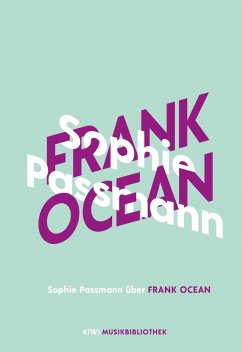
Vanishing Selves
Negotiating Selfhood in Self-Representational Works by Goethe, Sand, and Nietzsche
Herausgegeben: Grub, Frank Thomas
Versandkostenfrei!
Versandfertig in 6-10 Tagen
66,75 €
inkl. MwSt.

PAYBACK Punkte
0 °P sammeln!
This study examines a series of self-representations from the 19th century (by Goethe, Sand, Nietzsche) that obstruct a confessional and psychologizing mode by diminishing the significance of the self. The theoretical inspiration is drawn from thinkers like Emmanuel Levinas, Hannah Arendt, Maurice Merleau-Ponty, and others, who give priority to the individual's close attachment to a multifaceted world. This approach will lead us to themes and concepts like "participation," "perception," "togetherness," "otherness," "corporeality," "collectivism," "publicness," and "sociality." Vanishing Selves...
This study examines a series of self-representations from the 19th century (by Goethe, Sand, Nietzsche) that obstruct a confessional and psychologizing mode by diminishing the significance of the self. The theoretical inspiration is drawn from thinkers like Emmanuel Levinas, Hannah Arendt, Maurice Merleau-Ponty, and others, who give priority to the individual's close attachment to a multifaceted world. This approach will lead us to themes and concepts like "participation," "perception," "togetherness," "otherness," "corporeality," "collectivism," "publicness," and "sociality." Vanishing Selves displays different forms of attachment to the world and identifies the ethical and existential potential in the affirmation of a world.












